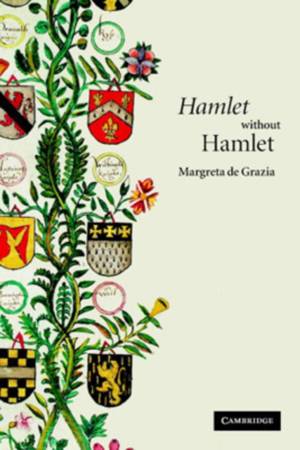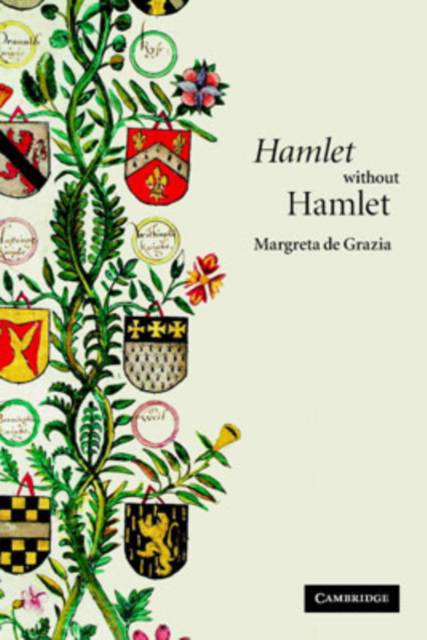
- Afhalen na 1 uur in een winkel met voorraad
- Gratis thuislevering in België vanaf € 30
- Ruim aanbod met 7 miljoen producten
- Afhalen na 1 uur in een winkel met voorraad
- Gratis thuislevering in België vanaf € 30
- Ruim aanbod met 7 miljoen producten
Zoeken
Omschrijving
'Hamlet' without Hamlet sets out to counter the modern tradition of abstracting the character Hamlet from the play. For over two centuries, Hamlet has been valued as the icon of consciousness: but only by ignoring the hard fact of his dispossession. By admitting that premise, this book brings the play to life around man's relation to land, from graves to estate to empire. Key preoccupations are thereby released, including the gendered imperatives of genealogy, and man's elemental affinity to dust. As de Grazia demonstrates from the 400 years of Hamlet's afterlife, such features have disappeared into the vortex of an interiorized Hamlet, but they remain in the language of the play as well as in the earliest accounts of its production. Once reactivated, a very different Hamlet emerges, one whose thoughts and desires are thickly embedded in the worldly, and otherworldly, matters of the play: a Hamlet within Hamlet.
Specificaties
Betrokkenen
- Auteur(s):
- Uitgeverij:
Inhoud
- Aantal bladzijden:
- 280
- Taal:
- Engels
Eigenschappen
- Productcode (EAN):
- 9780521690362
- Verschijningsdatum:
- 8/01/2007
- Uitvoering:
- Paperback
- Formaat:
- Trade paperback (VS)
- Afmetingen:
- 152 mm x 225 mm
- Gewicht:
- 449 g

Alleen bij Standaard Boekhandel
+ 144 punten op je klantenkaart van Standaard Boekhandel
Beoordelingen
We publiceren alleen reviews die voldoen aan de voorwaarden voor reviews. Bekijk onze voorwaarden voor reviews.











